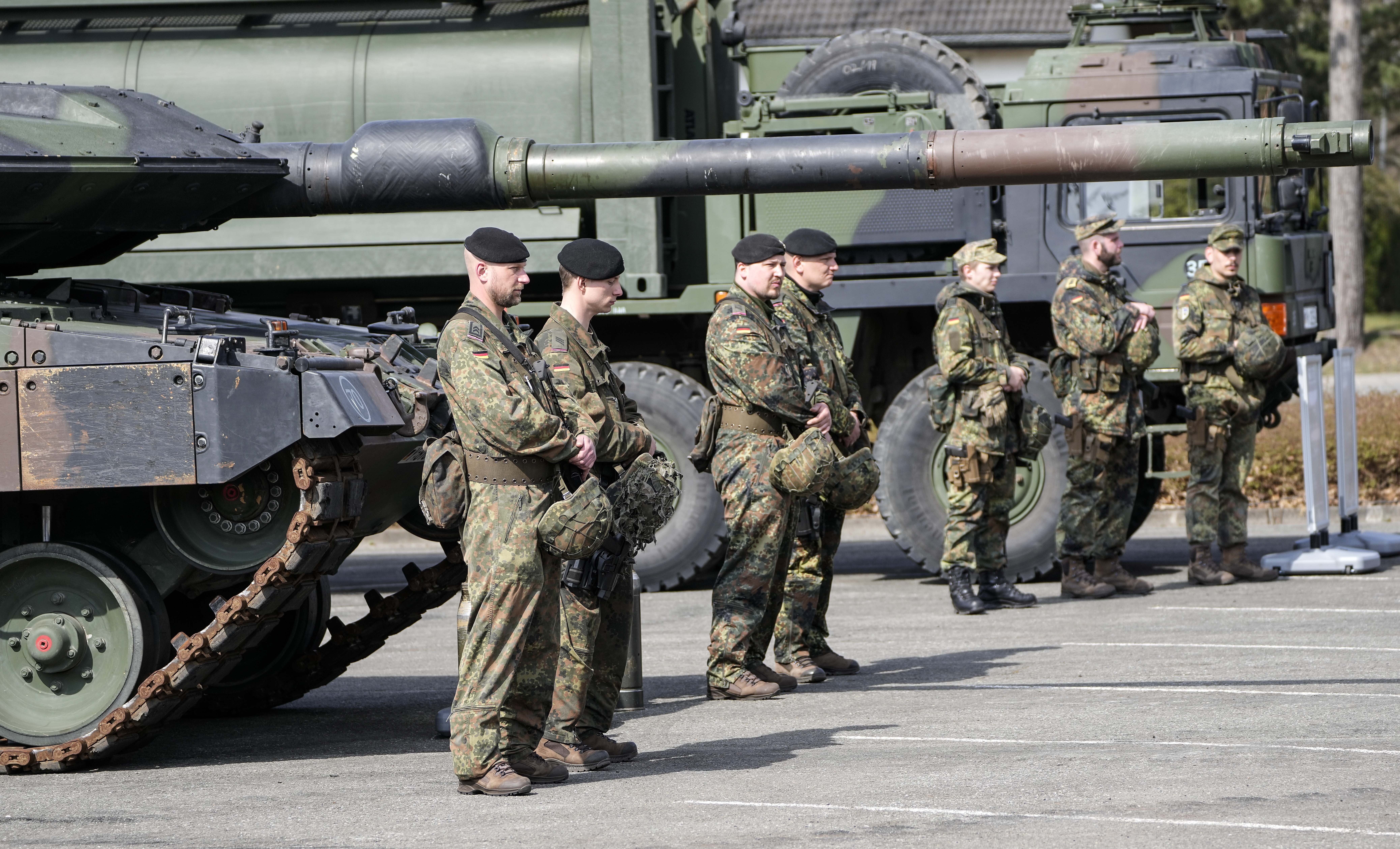Despite German Chancellor Olaf Scholz announcing a €100 billion war chest to bolster the ailing German army in February last year, “not a single cent has arrived from the special fund,” a damning military report signed off on by Parliamentary Commissioner for the Armed Forces Eva Högl has revealed.
Ahead of presenting the report on Tuesday, Högl’s foreword noted the geopolitical situation, reiterating the need for Germany’s military to be adequately prepared and lamenting the fact that it took a war on Europe’s doorstep for the weary state of the Bundeswehr to be addressed.
The SPD politician revealed that the military is still awaiting funding approved by the German government last year, and spoke of depleted ammunition stocks and the need for new ammunition depots, which would require “double-digit billions” of investment. She highlighted the poor health of numerous barracks and Bundeswehr-owned properties, which she described as being “in a miserable condition,” adding that “if things stayed at the current pace and with the existing framework conditions, it would take about half a century for just the current infrastructure of the Bundeswehr to be completely renovated.”
Högl added that many of the problems outlined in the annual report have been raised previously and “been known for years,” and yet “shockingly little” has been done to address them.
She added that even when the €100 billion funding does materialize, this alone will be insufficient to “compensate for all shortfalls,” citing military experts who estimate a total of approximately €300 billion is required to revamp the beleaguered organization.
Högl used the opportunity of the report to insist on the defense budget being increased above the current 1.5 percent of GDP “in a clear step toward the 2 percent NATO target,” a target Germany has been regularly failing to attain for decades.
[pp id=59268]
It is not just the lack of funds, however, that is affecting the military’s operational readiness. Its procurement processes are “too sluggish,” and clothing, ammunition, and spare parts reserves are minimal.
The commissioner warned recent price hikes in the energy and raw materials sector, in addition to the increased international demand for military equipment, has made procurement even more difficult.
On recruitment as well, the Bundeswehr is having difficulty in attracting new talent. Högl said recruitment efforts must be “massively increased” to reach the goal of 203,000 soldiers, a considerable increase over its existing 183,000 headcount.
She cited the war in Ukraine as being a factor in potential recruits being put off from applying for military roles, revealing the number of applications this year has fallen by 11 percent. As a result, 16 percent of the 120,000 military vacancies listed this year have failed to be filled.
This issue has been raised by recently appointed Defense Minister Boris Pistorius, who suggested a return to some form of national service may be necessary not only to bolster military personnel but to refocus young people failing to resonate with a sense of national identity.
[pp id=58059]
“It appears that the people have lost the awareness that they themselves are part of the state and of society. Taking responsibility for a set period could open eyes and ears to that,” Pistorius told Bavarian newspaper Süddeutsche Zeitung last month, a viewpoint dismissed as “nonsensical” by government spokesperson Steffen Hebestreit.
Högl also expressed her concerns about the military’s carbon footprint, revealing that carbon emissions related to Bundeswehr activity have increased 18 percent in the past three years. She highlighted the Bundeswehr’s commitment to 100 percent renewable energy usage by next year and revealed its electricity mix is currently relying on only 36.3 percent of renewable energy sources.
Lastly, the report criticized the military’s commitment to diversity, claiming “stereotypical ways of thinking in relation to men and women” are still entrenched within its philosophy.
“[Male] soldiers are said to have better leadership skills and a higher level of performance than their female comrades, while female soldiers have general disadvantages when it comes to promotion and assessment,” Högl explained. People with disabilities are also still being rated as being less efficient than people without disabilities, she added.
[pp id=64903]
The Bundeswehr’s demise has been well reported over the past twelve months in particular, and former Defense Minister Christine Lambrecht was dismissed in January for her inability to repair the military’s shortcomings.
Her successor, Boris Pistorius, told parliamentary colleagues earlier this month the German army is currently not fit for purpose and would be unable to defend the country from any substantial attack.
“We do not have an armed force capable of defending Germany or its allies against an aggressor like the Russian army. In the past, we did not fulfill our obligations in NATO. Now, we have to make the necessary contributions as a country,” he said at a meeting of SPD lawmakers.
Since his appointment, Pistorius has attempted to undergo a serious shake-up of the organization, and on Monday named Major General Carsten Breuer as the new head of Germany’s armed forces, replacing the outgoing General Eberhard Zorn who had come under fire for his flawed analysis of Russian and Ukrainian military capabilities, according to Die Welt.





